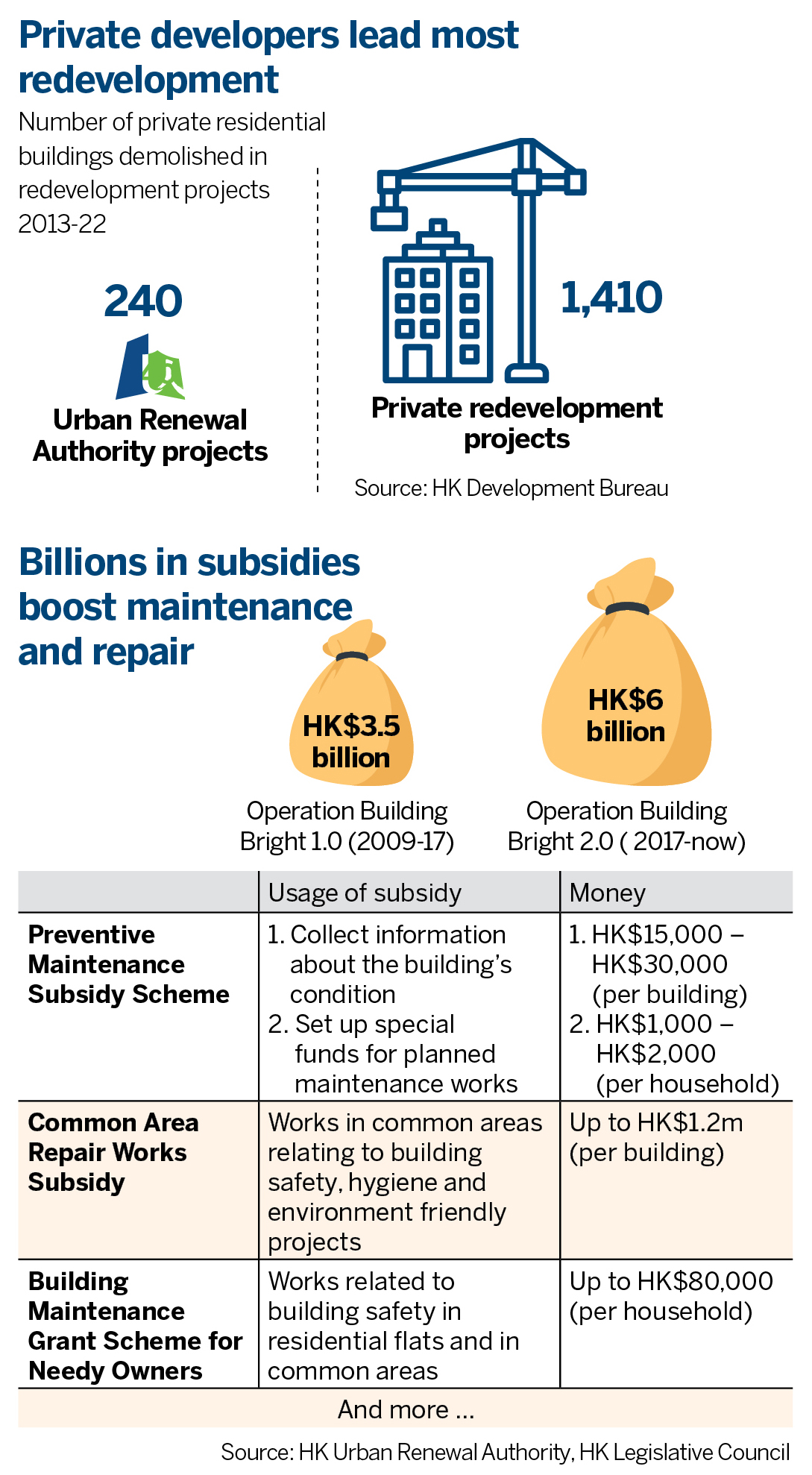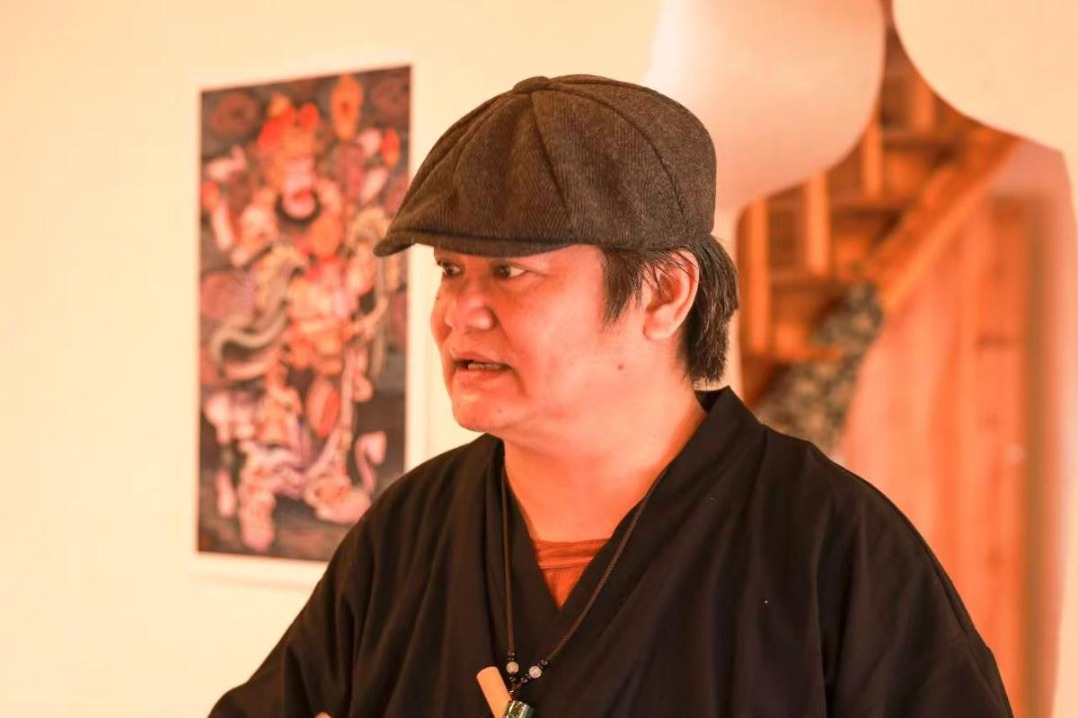How secure are buildings past 50 years old?


Trust deficit
According to Ryan Chuk Hing-toi, vice-chairman of the New Territories Association of Societies, "Many OCs are made up of retirees and housewives. You cannot expect them to have knowledge of engineering or building repairs." There is a trust deficit inhibiting rectification works, he added. "Some consulting companies try to persuade OCs to accept expensive maintenance contracts. In other cases, individuals with construction business links try to influence OC elections for benefits," he said.
Chuk noted that quarrels between apartment owners and OCs can develop when faced with large bills, continuing unresolved for years. He urged the government to step up supervision of OC elections to prevent election-rigging. The government has offered courses and free legal advice on building management to OCs, though Chuk said this was not sufficient.
He proposed developing a more comprehensive building rehabilitation company database, in which apartment owners could search for detailed information on consultants and contractors, to prevent them from being cheated.
In New York City, all buildings over six floors must inspect their facades every five years. Singapore mandates nonresidential buildings to inspect structures every five years, while residential towers have to be inspected every 10 years.
Preserve heritage
Identifying and preserving properties of “heritage value” is not given due consideration, amid the rush to demolish and redevelop real estate. Sentiments of culture and historical significance seldom count in commercial redevelopment.
Ho Puay Peng, head of the Department of Architecture at the National University of Singapore and former chairman of the School of Architecture at the Chinese University of Hong Kong, said many modern buildings with unique local characteristics were built during the city’s economic boom between the 1950s and 1970s. The Antiquities Advisory Board assessed 207 post-1950 buildings, classifying 120 as of historic value.
However, most of the city’s registered monuments and historic buildings are those established before World War II. Ho said some post-war historic buildings have already been torn down over the past decades. Ho urged the authorities to speed up assessment of post-war buildings before others with historical or cultural significance are lost.
Ho said the city’s historic building grading system is “a tiger without teeth” as many of the buildings are still in private hands. The system can only advise owners to protect buildings. Owners can still demolish their properties if they wish.
In the United Kingdom, donating historic buildings to the government or nonprofit organizations avoids inheritance tax, which is not the case in Hong Kong, said Ho. For buildings with cultural value, he suggested the government provide incentives such as land exchange to encourage heritage preservation.
What's next
1. Prioritize assistance to "three-nil" buildings.
2. Set up a maintenance fund for building inspections and repair.
3. Offer better urban renewal incentives to private developers.
4. Protect post-war buildings with heritage value.
5. Enhance education on maintenance and heritage value.
- Construction site accident leaves 6 dead in Shandong
- Famous romance novelist Chiung Yao passes away
- National College Student English Drama Festival
- China's higher education soars: 75 years of remarkable growth
- China launches new remote-sensing satellite
- China's railway passenger traffic exceeds 4b in first 11 months





































